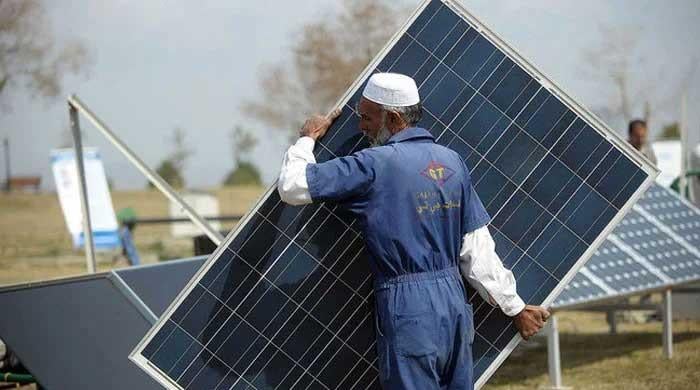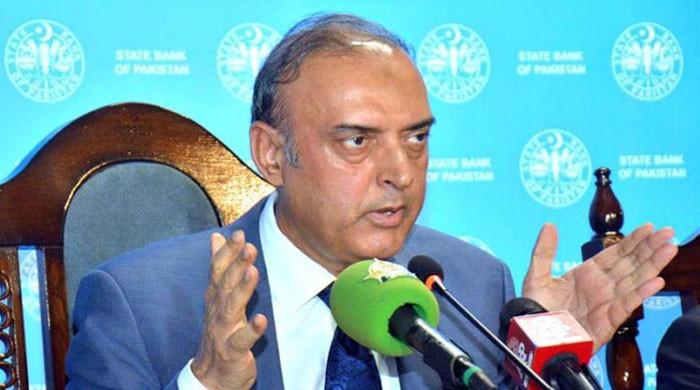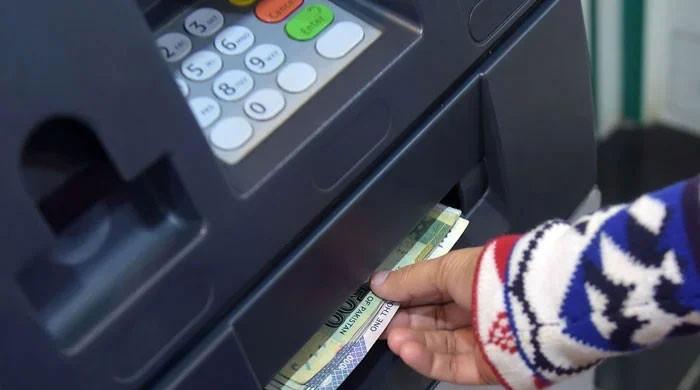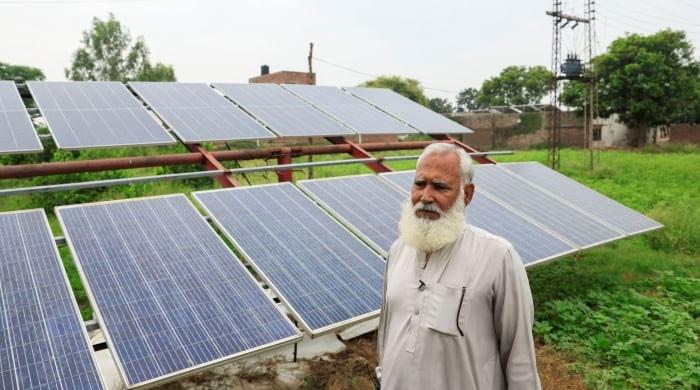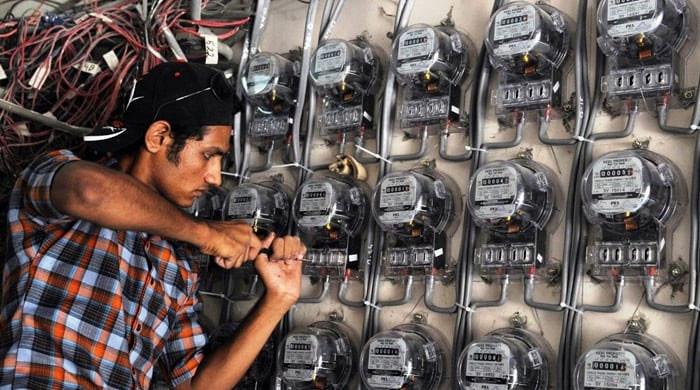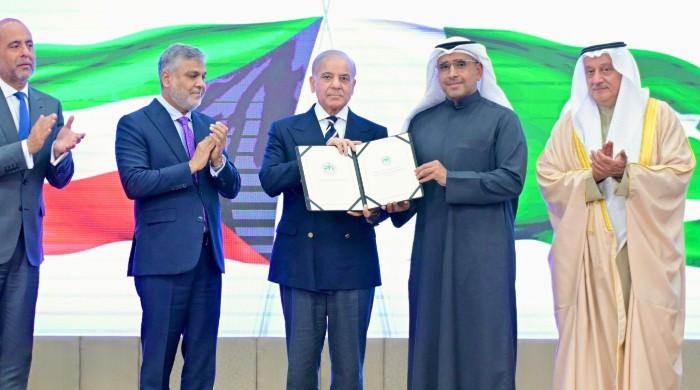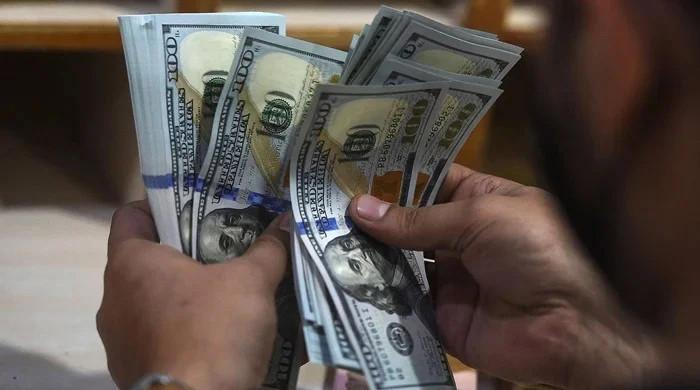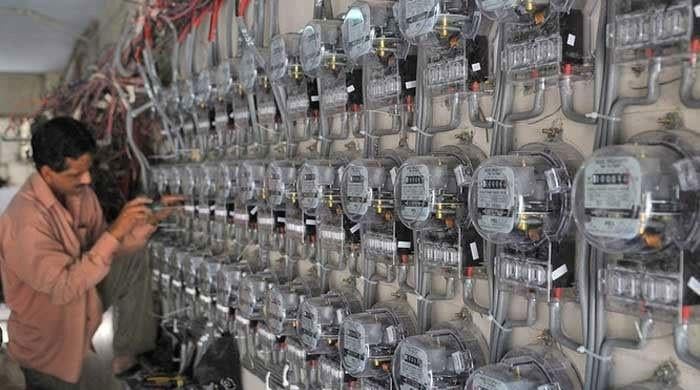SBP geared up to tackle 'mother of all external shocks' as Pakistani economy falters
'We have several areas we are working on, and refining them in light of development,' Governor Reza Baqir said
April 22, 2020
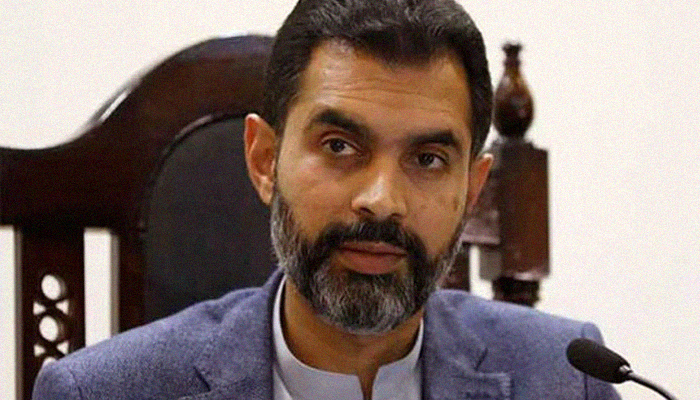
KARACHI: The State Bank of Pakistan (SBP) is all geared up to tackle the "mother of all external shocks" as the economy falters amid the coronavirus crisis, its governor, Dr Reza Baqir, said in an interview with Bloomberg.
"The policy response during [COVID-19] has been prudent,” Baqir told the publication, referring to three consecutive rate cuts that brought down the interest rate to 9% — single digits, as advised and demanded by the local business community.
However, the Pakistani central bank was "absolutely ready to take more actions if there is a need”, he added.
The SBP has so far introduced a number of measures to tackle the crisis that has adversely impacted the country's economy, leaving many in a limbo as Prime Minister Imran Khan continues to vouch for easing lockdowns to prevent hunger and poverty due to shuttered businesses and provincial leaderships lean towards continuing the restrictions imposed as the number of cases rise exponentially.
Interestingly, the economy is also forecast to shrink — 1.5% — for the first time in 68 years. The central bank, on the other hand, has attempted to mitigate the blows dealt by the novel virus by suspending loan payments for a year in some cases and allowing further borrowing at half the policy rate to cushion businesses and prevent mass layoffs.
Baqir, in this regard, said: "The great global lockdown has been the mother of all external shocks" especially for the emerging markets, such as Pakistan. The problems, he added, were exacerbated because such economies have high debts and "limited policy space to undertake expansionary policies".
The SBP's steps to assist businesses helped dampen the falling rupee, which over the last week ended up gaining over 4% to reach Rs160.33 a dollar.
PM Imran last month announced a Rs1.2-trillion relief and stimulus package to ward off the negative impact from the COVID-19 pandemic, while his Ehsaas programme, under SAPM Dr Sania Nishtar, is expected to benefit some 67 million people around Pakistan.
The premier has also managed to obtain another $1.4 billion in loans from the International Monetary Fund (IMF), which has already lent the developing economy $6 billion under an Extended Fund Arrangement (EFF).
According to the IMF, which believes Pakistan has made some progress after all, whatever growth gets lost to the coronavirus pandemic would be temporary and the country would continue on its path to trim public debt. Earlier this week, the global lender said inflation and debt-to-GDP ratio were expected to fall to 4.8% and 73%, respectively, in 2025, despite the latter expanding this year due to the virus crisis.
The pandemic has affected over 10,000 people and killed more than 200 ever since the first case was reported back in February this year.
A lockdown was imposed to curb the spread of the virus, though it has recently been eased by PM Imran ahead of the looming holy month of Ramazan, where mosques would reopen despite doctors warning against it. Industries allowed to resume operations include those with export obligations and the cement and construction sectors.
As the government and the SBP work collaboratively, Baqir said: "We have several areas we are working on, and refining them in light of development.
"It is more appropriate to talk about them once we feel the situation is such that we need to do more,” the governor added.




